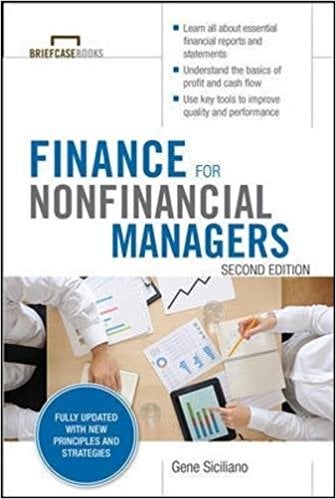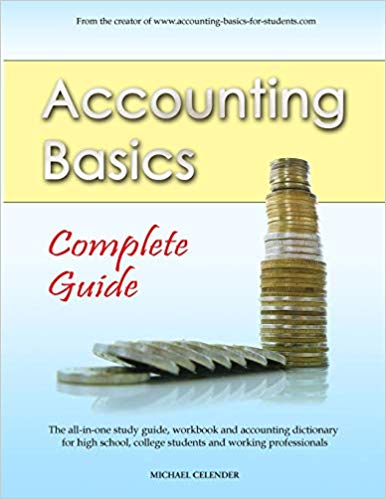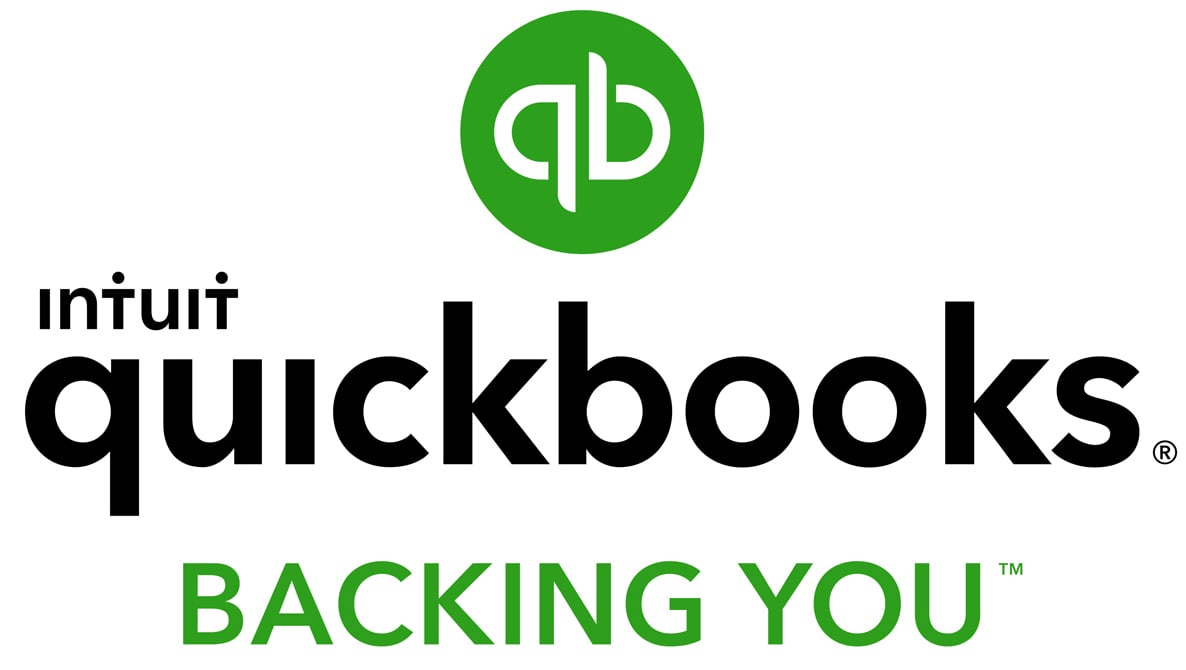The 15 Best Accounting Books for New Small Business Owners

The Best Accounting Books for Small Business
-
- “Simple Numbers, Straight Talk, Big Profits” by Greg Crabtree
- “Accounting for the Numberphobic” by Dawn Fotopulos
- “Finance for Nonfinancial Managers” by Gene Siciliano
- “The Accounting Game: Basic Accounting Fresh From the Lemonade Stand” by Darrell Mullis
- “Profit First” by Mike Michalowicz
Many new small business owners rely solely on their bookkeeper or accountant to explain their financial statements to them. Although nothing can replace the advice of a skilled financial advisor, having a basic understanding of important business accounting concepts can give you peace of mind and confidence that you’re making the right decisions for your business. That’s where the best accounting books for small business can come in handy.
Now, the easiest way to gain this understanding is by reading up on the topic—but what are the best books to learn accounting?
There are hundreds of accounting books out there—and they range from financial accounting books, management accounting books, accounting principles books, and more. To help you avoid spending your money—and your precious time—on books that might not be of value to you, we’ve compiled a list of the 15 best accounting books for small business owners.
15 Best Accounting Books for Small Business Owners
Our list includes a mix of classic technical texts, as well as more contemporary, conversational books, all of which will get you up to speed on the most important accounting concepts necessary for your business and how to leverage them to increase your bottom line. By reading these you’ll learn the best small business accounting tips, lessons other business owners have learned before you, the best accounting tools to use and more.
1.”Simple Numbers, Straight Talk, Big Profits!” by Greg Crabtree

Greg Crabtree has more than 30 years of experience as an accountant and is fluent in the language of accounting. However, that doesn’t mean he hides behind industry jargon in his book. Instead, Crabtree uses practical examples and step-by-step instructions to use your numbers to guide your business to profitability, which is why “Simple Numbers, Straight Talk, Big Profits!” is our first pick for the best accounting book for small business. Crabtree also throws in a good measure of tough love to help business owners take decisive action with their finances—a skill every small business owner should learn. For free resources to support the teachings in the book, go to the “Free Tools” section of his website and accounting blog, simplenumbers.me.
You’ll need to have a basic understanding of how your financial statements (profit and loss statement, balance sheet, and statement of cash flows) work together to fully understand some of the later chapters. If you need a primer on this, check out the next two picks on our list for a more thorough breakdown of these accounting principles.
2.”Accounting for the Numberphobic” by Dawn Fotopulos

Dawn Fotopulos has written one of the most straightforward, easy-to-read accounting books for small business owners, even those who are numberphobic. “Accounting for the Numberphobic” is one of the best management account books because it explains how the three key financial statements, including profit and loss statements (or the net income statement, as Fotopulos calls it), statement of cash flows, and balance sheets, serve as your business’s financial dashboard and how key accounting principles work together to help you steer your small business to success.
Fotopulos’s simple explanation of complex accounting and bookkeeping concepts will offer you a greater understanding of your financials in no time (and you may even start to look forward to your meetings with your accountant).
3. “Finance for Nonfinancial Managers” by Gene Siciliano

Although one of the more technical financial accounting books on this list, “Finance for Nonfinancial Managers” is still jargon-free and very accessible for business owners looking to brush up on their accounting principles.
The target market for this book is managers in larger companies, but there is plenty of practical information that will benefit small business owners, too. Greg Siciliano’s management accounting book provides a primer on how to maintain balance sheets, income (profit and loss) statements, and statements of cash flows. “Finance for Nonfinancial Managers” also dives into other financial and bookkeeping reports you may find helpful as you grow your business. For example, Siciliano places a heavy emphasis on cost accounting, which is a critical concept to understand in order to maximize your business’s profitability. Cost accounting can be difficult, but this book simplifies the idea so it’s not intimidating.
The format of “Finance for Nonfinancial Managers” makes it one of the best reference accounting books for small business owners. Key terms, warning signs, examples, and tools are flagged by symbols and boxes, which makes it easy to quickly locate what term or concept you are looking for as you skim through the book.
4. “The Accounting Game: Basic Accounting Fresh From the Lemonade Stand” by Darrell Mullis and Judith Orloff

Psychology tells us humans learn best through play, and “The Accounting Game” makes learning accounting concepts and applying them to your business seem like, well, a game.
Darrell Mullis and Judith Orloff’s accounting book for small business owners is deceiving in its simplicity—even the cover leads the casual browser to assume the book belongs in the children’s section and not alongside the serious accounting books. As you read “The Accounting Game,” you may even forget accounting is supposed to be boring. Then, before you know it, you suddenly have a better understanding of accounting and how it applies to your business.
“The Accounting Game,” as is the case with most of the other accounting books on our list, is highly interactive and includes step-by-step processes you can implement in your own business. Mullis and Orloff’s story format makes it an easy-to-read option, and you’ll likely find yourself cheering on your lemonade stand as it grows into a profitable enterprise.
5. “Profit First” by Mike Michalowicz

If you’ve read any of the other books on this list, you’re hopefully familiar with the basic accounting equation: Sales – Expenses = Profit. This accounting equation puts profit last, making it an afterthought and something that may eventually happen someday if you do everything just right and have a fair amount of luck. “Profit First” flips the equation on its head, resulting in: Sales – Profit = Expenses.
“Profit First” is not an accounting book in the strictest sense, but it tackles the challenges of cash management beautifully. Instead of focusing on reviewing your financial statements, Mike Michalowicz outlines a method to help you manage your cash using multiple bank accounts, a take on the old “envelope method” your mom likely taught you when you got your first paycheck. Your accounting process will stay the same as it always has, but if you employ the “Profit First” method in your business, you will make your paycheck and your profit a priority rather than an afterthought.
In his unique, conversational tone, Michalowicz draws you into his theory, making it one of the best accounting books for small business and feel more like a leisurely read than a traditional business book. You might be tempted to keep reading to the end and not stop to implement the actionable steps outlined in each chapter. If that’s the case, the book is readable enough that you can go back through it a second time, pausing to download the free resources available on the author’s website.
6. “The Tax and Legal Playbook: Game-Changing Solutions for Your Small-Business Questions” by Mark J. Kohler

For an eye-opening peek into the world of small business taxes and small business law, CPA and attorney Mark J. Kohler walks you through the major legal questions most business owners face while growing their business. In keeping with the title, Kohler offers a detailed playbook on the right way to manage your business—from major accounting decisions to tax strategies and legal scams to avoid—all with thorough examples and straightforward advice to save business owners time and money in the long run.
If you’ve ever felt indecisive or at a loss when it comes to your finances, “The Tax and Legal Playbook” will provide you with the knowledge and expertise you need to feel confident in managing your business finances, with or without an accountant.
7. “Accounting Made Simple: Accounting Explained in 100 Pages or Less“ by Mike Piper

Mike Piper’s “Accounting Made Simple” is the best accounting book for small business owners with little-to-no free time. In less than 100 pages, Piper quickly explains the most valuable lessons of accounting and what each business owner needs to take away from each one.
Like a few of the other accounting books on our list, “Accounting Made Simple” avoids technical accounting jargon and explains complicated accounting principles with straightforward, real-life examples. If accounting practices and equations are completely new to you, this may just be the best accounting book for you.
8. “Financial Statements: A Step-by-Step Guide to Understanding and Creating Financial Reports” by Thomas Ittelson

For small business owners seeking a more thorough understanding of accounting, “Financial Statements: A Step-by-Step Guide to Understanding and Creating Financial Reports” by Thomas Ittelson is a great option. As an all-encompassing accounting book, Ittelson explains how even business owners unfamiliar with accounting practices can learn to measure their business’s financial health and improve their financial literacy, all in one book.
With a unique, visual approach, Ittelson explains how each financial interaction affects the three key financial statements of a business. With clear explanations of each financial statement and the surrounding accounting principles, this accounting book is the best option for small business owners and non-accountants who have a basic understanding of managing their finances.
9. “Small Time Operator: How to Start Your Own Business, Keep Your Books, Pay Your Taxes, and Stay Out of Trouble” by Bernard B. Kamoroff

Written by a CPA, “Small Time Operator,” is more of a how-to when it comes to starting your own business but it covers everything you need to know about running your own business, including taxes, bookkeeping, and accounting. It’s easy to understand and takes the complex ideas behind accounting and other financial processes and breaks them down to help you understand your business finances. It even comes with some tables and worksheets to help you practice your accounting and bookkeeping. It was first published in 1976 but is in its 15th edition, so clearly Kamoroff’s advice has stood the test of time.
10. “Accounting for Small Business Owners” by Tycho Press

This book from Tycho Press covers the basics of business finance and accounting for new business owners. It can help you figure out how to pay your employees, track expenses, and more. It also has tables in it to demonstrate business accounting tactics and methods so you have an example of how to do it correctly before you dive into your own business financials. No matter what stage of setting up your business you’re in, this book can help you better understand your finances and plan for growth.
11. “Accounting All-in-One for Dummies, With Online Practice” by Kenneth W. Boyd

This book isn’t specifically made for small business owners, but can help anyone looking to learn the basics of accounting. Following the chapter and utilizing the quizzes and exercises—in book and online—can help you master those previously confusing concepts and formulas.
This version of “Accounting All-in-One for Dummies” includes everything from setting up your accounting system to preparing balance sheets and income statements, to handling cash. Marketed as nine books in one, you can be sure no accounting concept will go uncovered, and readers recommend it as easy to understand and ideal for business owners looking to understand their business accounting better.
12. “Accounting Principles: The Ultimate Beginner’s Guide to Accounting” by Gregory Becker

What better way to learn about accounting than from the ground up? In order to understand the more complex accounting concepts, you need to be able to understand the most basic principles first.
“Accounting Principles” covers all of the specific terms and the principles of accounting so you can understand the basics of accounting. Then the book covers how to use those terms and principles to prepare the financial statements for your business and all of the accounting necessities over each cycle.
An ideal starter for business owners with little-to-no accounting background, this book is an obvious choice for those new to the accounting field.
13. “Financial Shenanigans: How to Detect Accounting Gimmicks and Fraud in Financial Reports, Fourth Edition” by Howard M. Schilit

If someone other than you is involved in doing your business accounting, you’ll probably want to double- or triple-check their work so you can be sure it’s all on the straight and narrow. But it’s about more than simply looking over their work, it’s also about checking it thoroughly. Of course, this can be difficult if you don’t understand accounting in the first place. That’s where “Financial Shenanigans” comes in.
Authors Howard Schilit, Jeremy Perlet, and Yoni Engelhart, break down everything you should be on the lookout for when reviewing your business’s accounting systems. This book includes case studies and lessons other business owners have learned the hard way so you know what to look out for.
14. “Warren Buffett Accounting Book” by Stig Brodersen and Preston Pysh

This book will help you learn a few key accounting skills like calculating the value of a company, what a discount rate is, how to read an income statement and a balance sheet, and more. Not only is this book insightful, but it’s also actually fun to read. It’s written for someone with no prior accounting knowledge, so anyone can understand the topics and the lessons it includes. However, if you already have a basic understanding of accounting principles, this may be too basic for you.
15. “Accounting Basics: Complete Guide” by Michael A. Celender

“Accounting Basics” is like a workbook for those looking to learn more about accounting. It includes accounting lessons with examples so you can see how to replicate it with your own finances. It also has questions and exercises you can use to make sure you’re fully understanding the concepts as you cover them.
The book is your guide to understanding accounting with zero background. It even has a dictionary in it so you can expand your accounting vocabulary and be able to understand the text without having to turn to Google every few minutes.
The Final Word
Each of the best accounting books for small business included on our list is ideal for the small business owner. By setting aside 30 minutes to an hour each day, you can quickly read through the books on this list, extract the information most valuable to you, and implement the actions and steps that resonate with you. Consider keeping a pad of post-it notes close at hand to jot down thoughts and ideas you might want to revisit at a later time and make sure to follow up on your takeaways to keep them top of mind.
The immediate benefit of reading any one of these accounting books will be a greater understanding of the financial state of your business. The long-term benefits include increased profitability, cash flow, and growth. Investing the money in purchasing a few—or all—of these accounting books for small business and the time in reading them might be the activity with the highest ROI in your business this year.

Billie Anne Grigg
Billie Anne Grigg is a contributing writer for Fundera.
Billie Anne has been a bookkeeper since before the turn of the century. She is a QuickBooks Online ProAdvisor, LivePlan Expert Advisor, FreshBooks Certified Beancounter, and a Mastery Level Certified Profit First Professional. She is also a guide for the Profit First Professionals organization.
Billie Anne started Pocket Protector Bookkeeping in 2012 to provide an excellent virtual bookkeeping and managerial accounting solution for small businesses that cannot yet justify employing a full-time, in-house bookkeeping staff.

Featured
QuickBooks Online
Smarter features made for your business. Buy today and save 50% off for the first 3 months.
Related Posts
- 15 Essential Accounting Tasks for Business Owners—and When to Get Them Done
- How to Find a QuickBooks ProAdvisor: A Step-by-Step Guide
- Top 11 Small Business Accounting Tips to Save You Time and Money
- What’s the Difference Between Bookkeeping vs. Accounting
- How to Reconcile in QuickBooks Online: Step-by-Step Instructions

